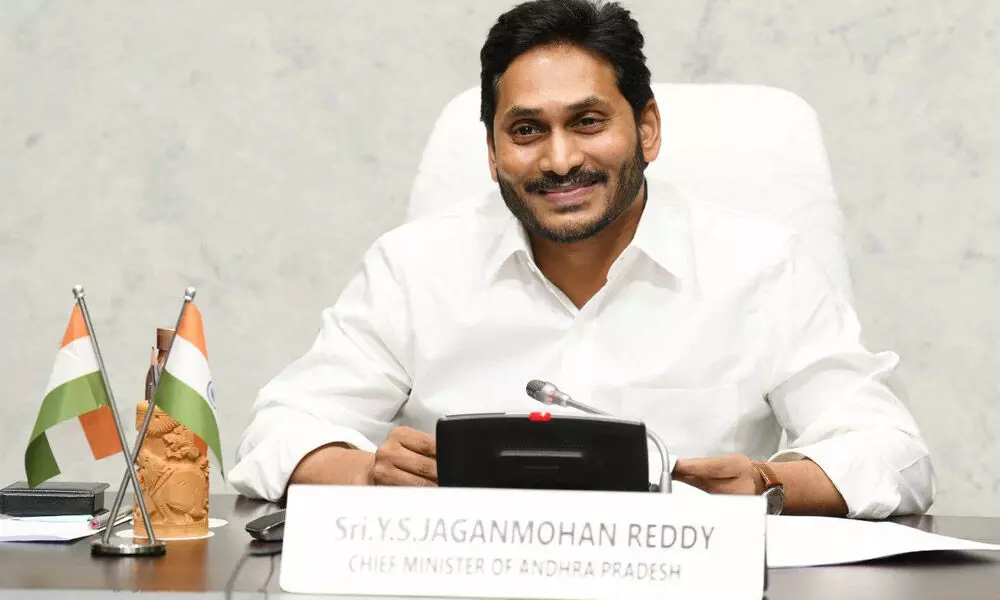Andhra Pradesh state finances on the brink

Andhra Pradesh chief minister YS Jagan Mohan Reddy
Huge lending by banks to Jagan govt looks to be murky
I used to argue at the time of the elections that all election manifestoes should be backed up by a budget and an estimation of where exactly money is going to come to fulfill those promises and that the Election Commission should make this mandatory. This had greater relevance for the Andhra Pradesh state where competitive populism and adversarial politics led to promising the moon for the electorate in the 2019 elections.
Normally, more experienced politicians realise the impracticability of such electoral promises and scale them down as required to make them financially sustainable once in power. But the Andhra Pradesh Chief Minister, Y S Jagan Mohan Reddy, went ahead as if he had a magic wand in his hands to fulfill all these promises. Hence, the problem the state has got into. The state today is existing on a hand-to-mouth basis, the hand, of course, supported by day-to-day borrowings. As part of this, the state government has gone in for borrowings from nationalised banks by creating an escrow account and pledging future retail excise tax revenues into that account in addition to providing government guarantees for the same.
A consortium of nationalised banks consisting of State bank of India, Punjab National Bank and Indian Bank together gave an amount of Rs 13,500 crore to finance different electoral promises of the Chief Minister against a government guarantee and escrowing of the future excise revenues of the state government. This looks to be a questionable lending from the bankers' side. Normally, escrow arrangement is resorted to when funding is for a project with streams of income. The future streams of income are escrowed to obtain a loan from a bank based on its commercial profitability. But in this case what is escrowed is not future streams of income from a project since there is no funding for any project commercial in nature here but future taxes of the state to obtain loan to fulfill the electoral promises of the Chief Minister. For the state government, this looks to be a convenient and ingenious way of circumventing the Fiscal Responsibility and Budget Management (FRBM) norms, but for the banks involved there is something fishy in the whole transaction. Future taxes of the state have to be voted upon by the legislature of the day and then only their expenditure can be approved. How can the present government escrow these future taxes on which it has no right, and the bank accept it and given such huge loans? FRBM norms are there to ensure that the debts incurred by the states are sustainable in the long run in terms of the revenues generated by the state. If future streams of income in terms of taxes are to be escrowed by the present government, the very concept of sustainable debt is lost. This is independent of the fact that the present government has no right to escrow future taxes.
Public sector banks have not distinguished themselves well by indiscriminately lending to private companies and creating problems of non-performing assets in the private sector which have become a big drag on the economy today. They seem to be today doing the same thing by lending indiscriminately to the state governments creating potential future non-performing assets by the state governments.
Time the Reserve Bank of India and the Ministry of Finance launched a detailed inquiry into the whole transaction which looks to be murky. First of all, the state government has escrowed certain future taxes on which it has no right. Banks have accepted such an escrow arrangement which may not be legally correct and released huge amounts of money. Further, this transaction challenges the very norms of FRBM evolved over a period of time by the Government of India to keep the debt levels sustainable. If borrowing to distribute to fulfil electoral promises becomes the norm this will not stop with this transaction of this state. It will have wider repercussions with every state resorting to this type of arrangement to circumvent the FRBM norms with the connivance of unscrupulous bankers.
That all the banks involved are public sector banks makes it all the more dangerous. It is time RBI and Ministry of finance government of India took note of this dangerous game state government and the public sector banks are playing and start a full-scale inquiry into the whole transaction. If borrowing is so easy all leaders whose political image is sagging will resort to this modus operandi of borrowing and distributing to shore up their political fortunes.










